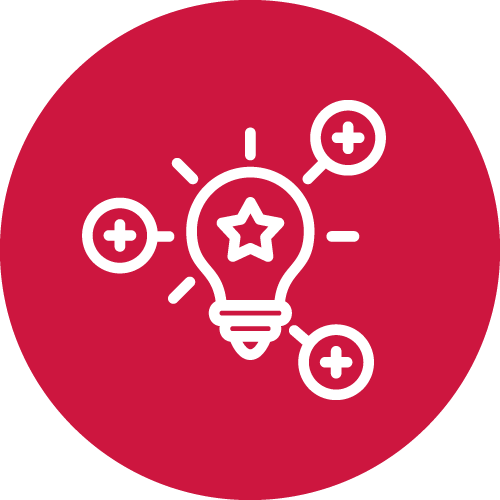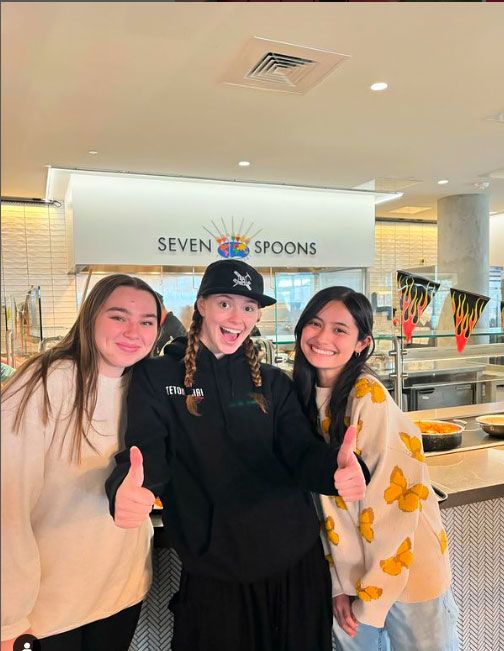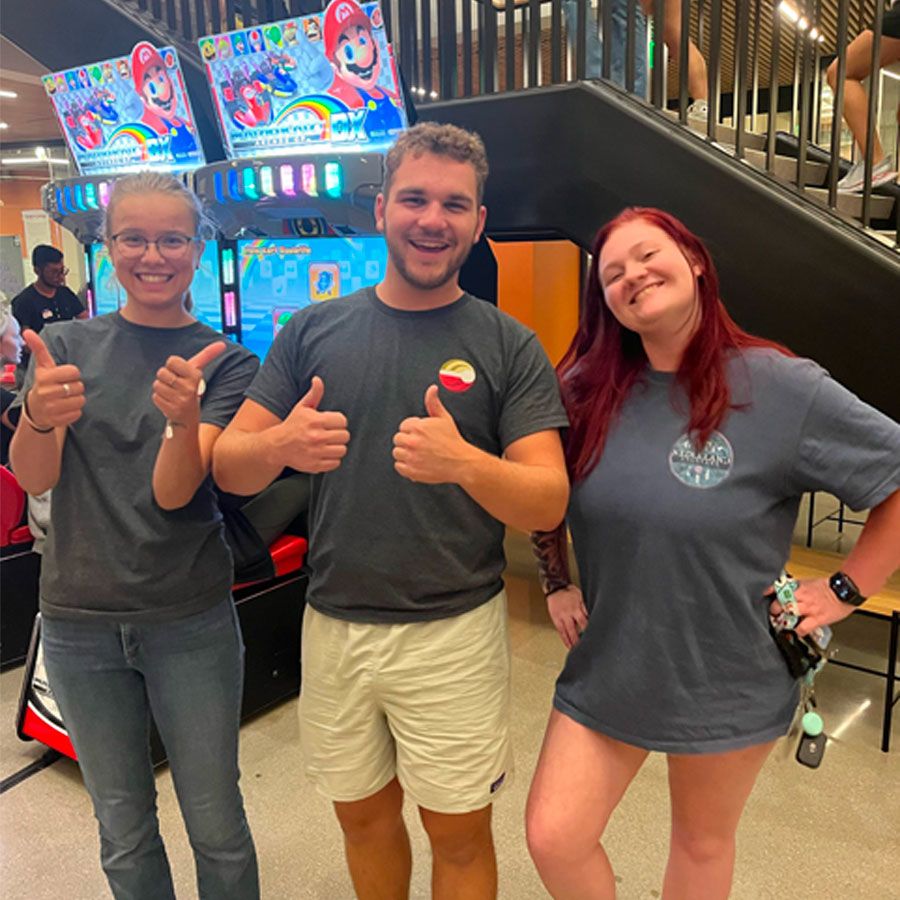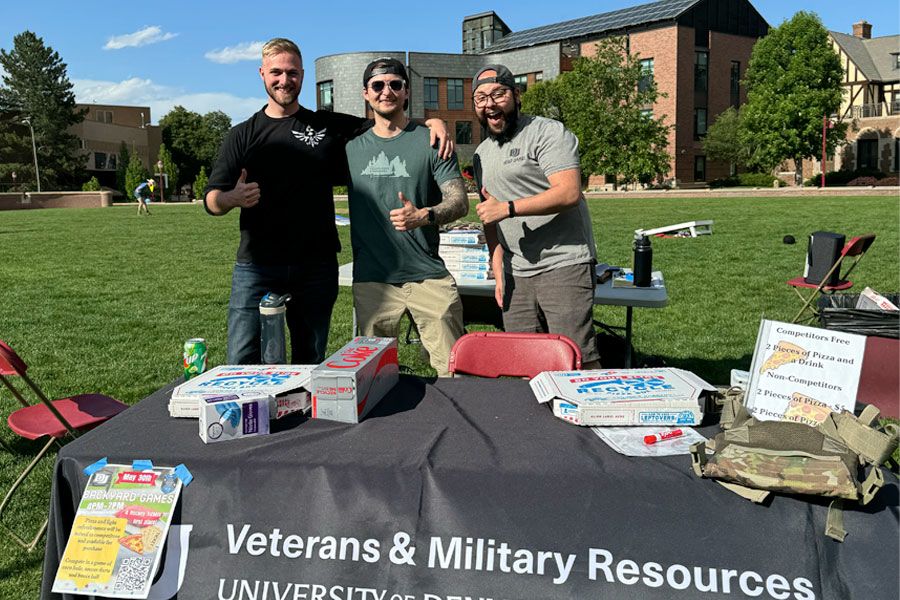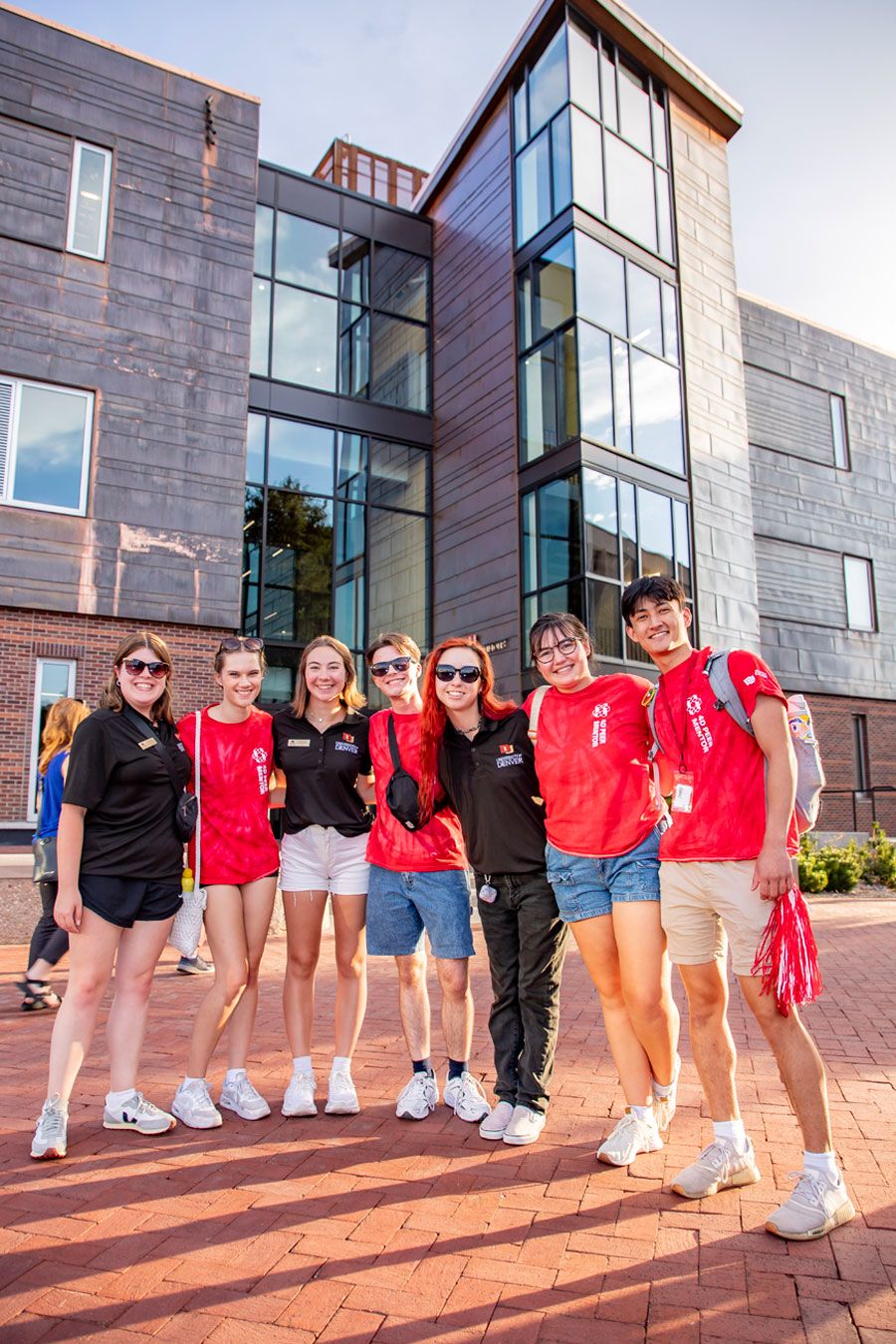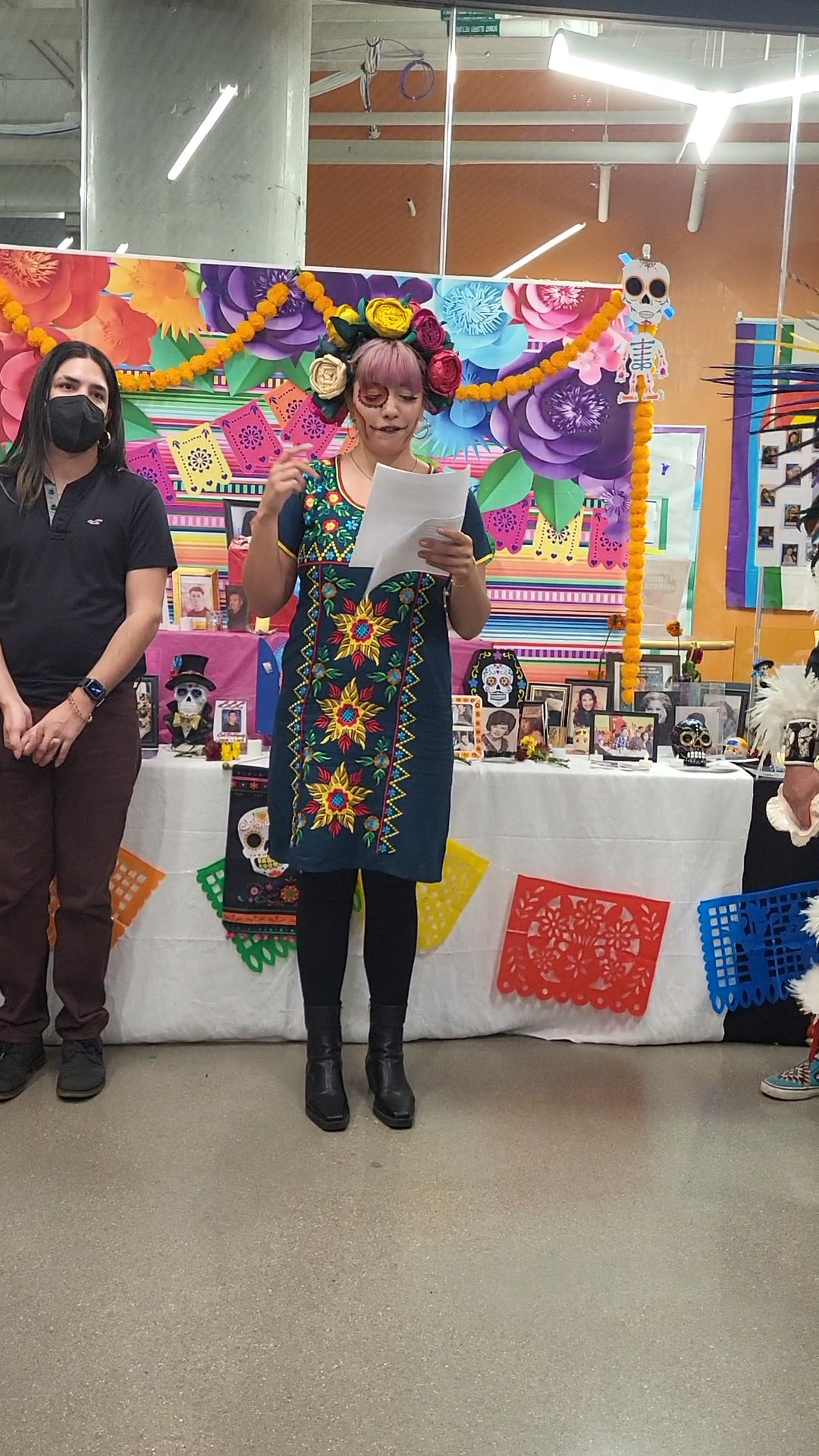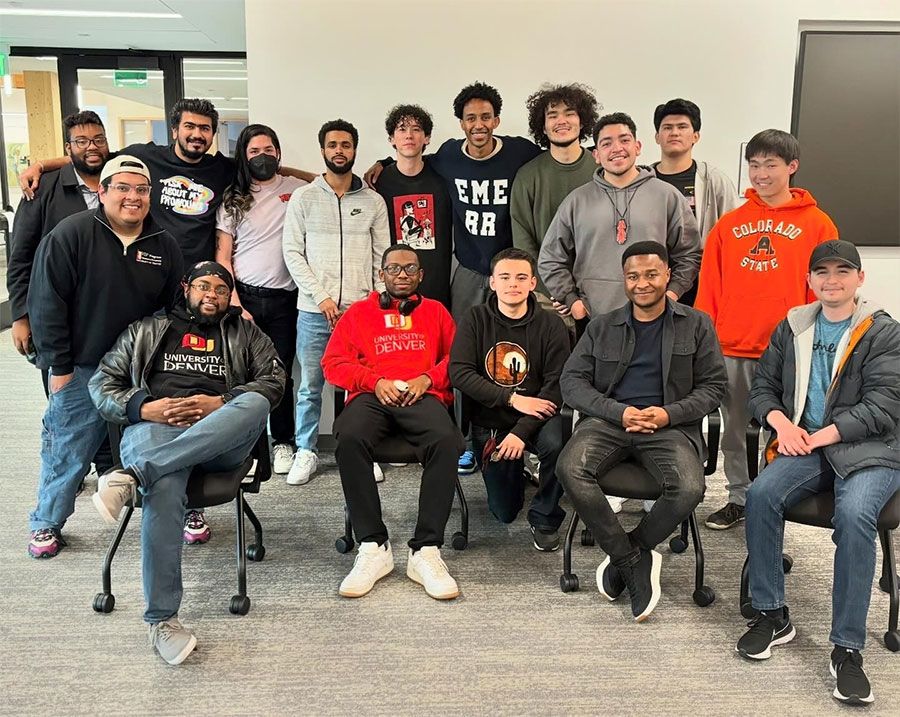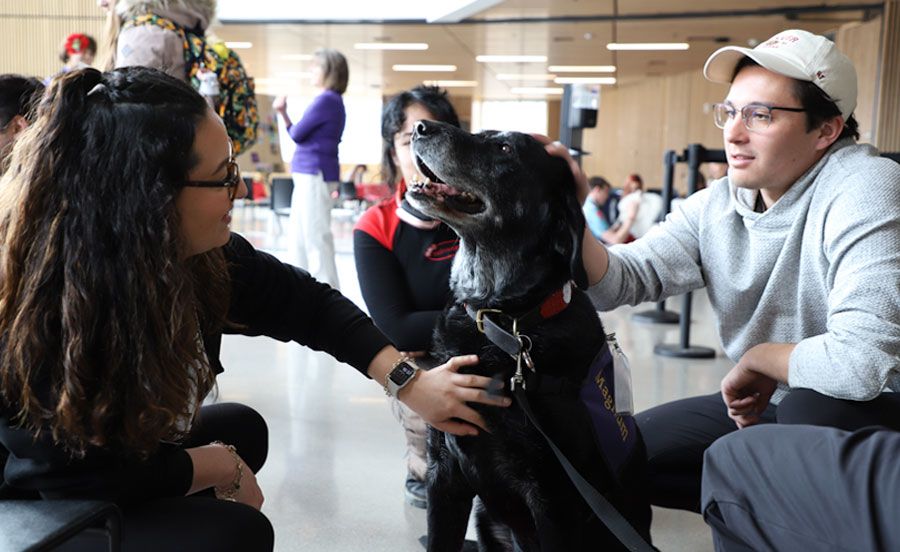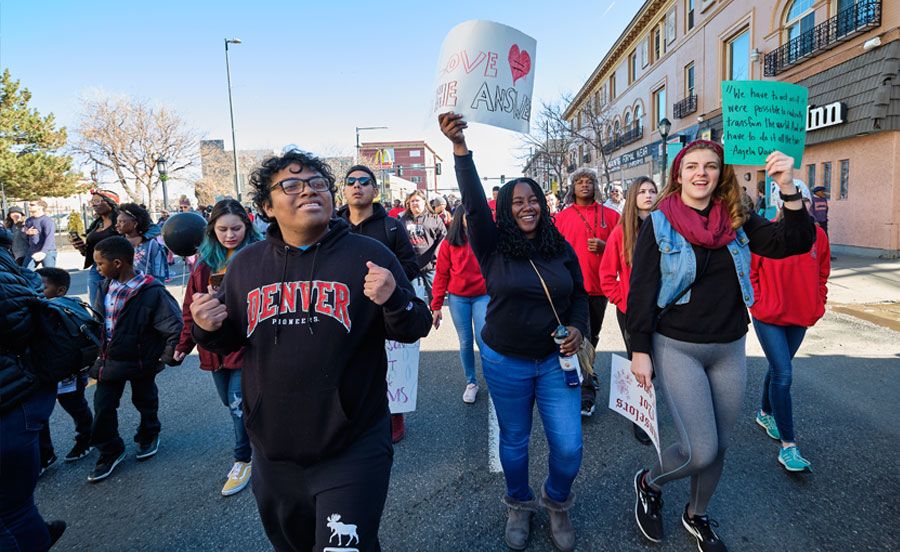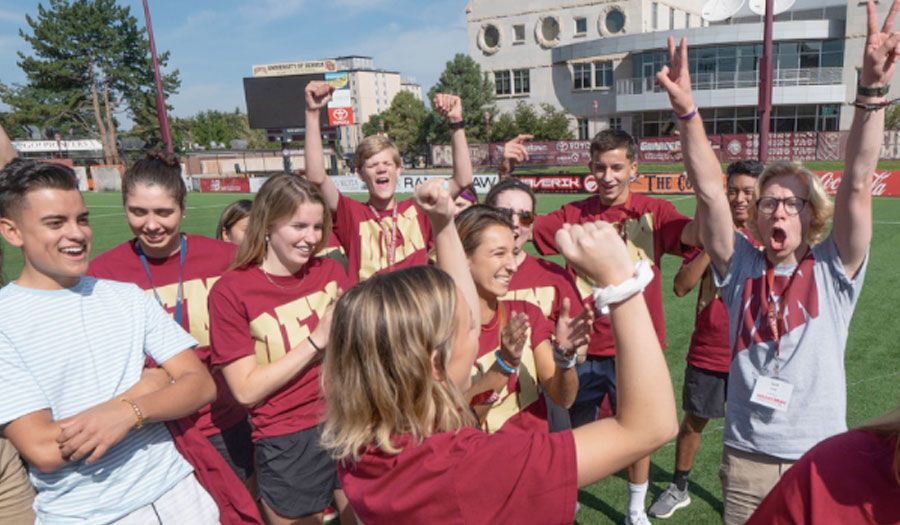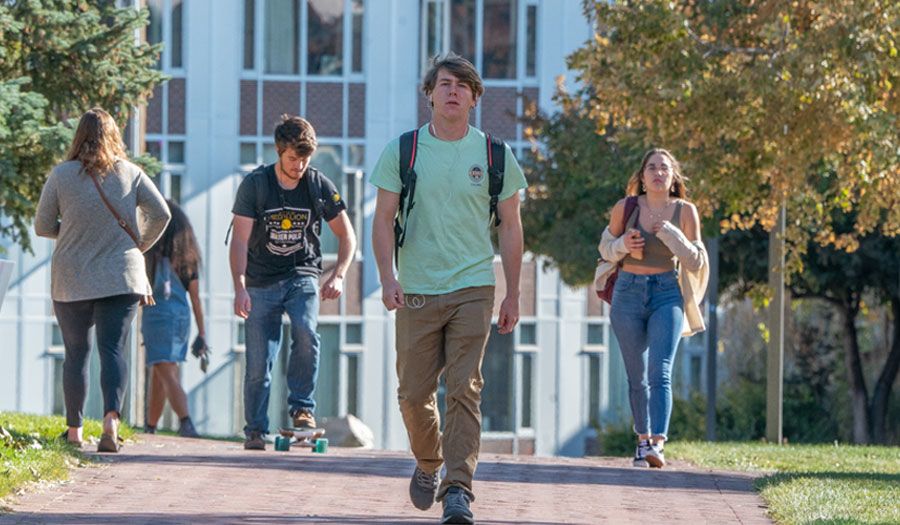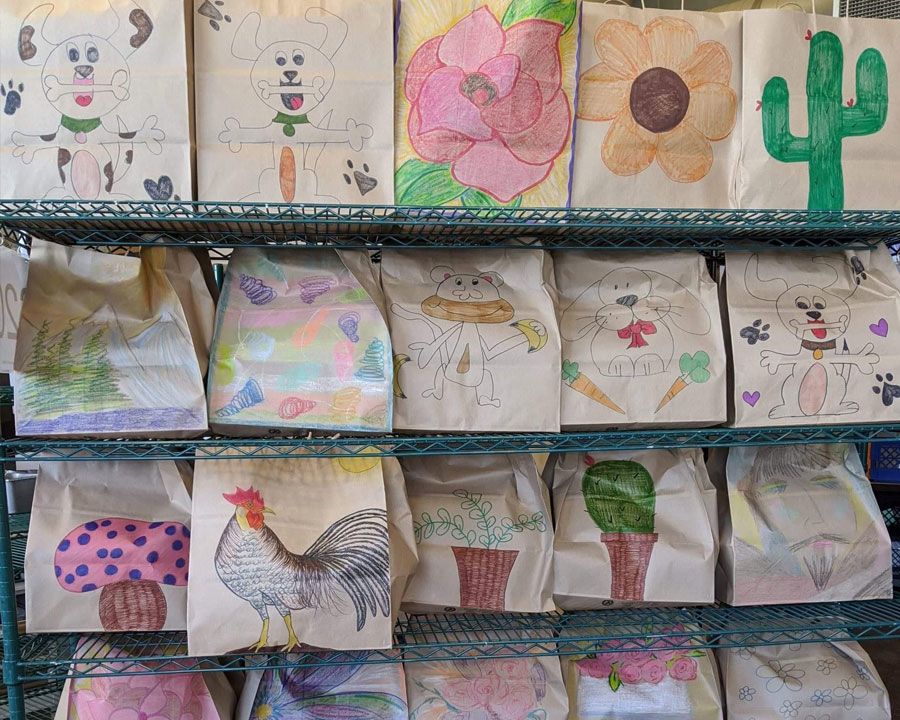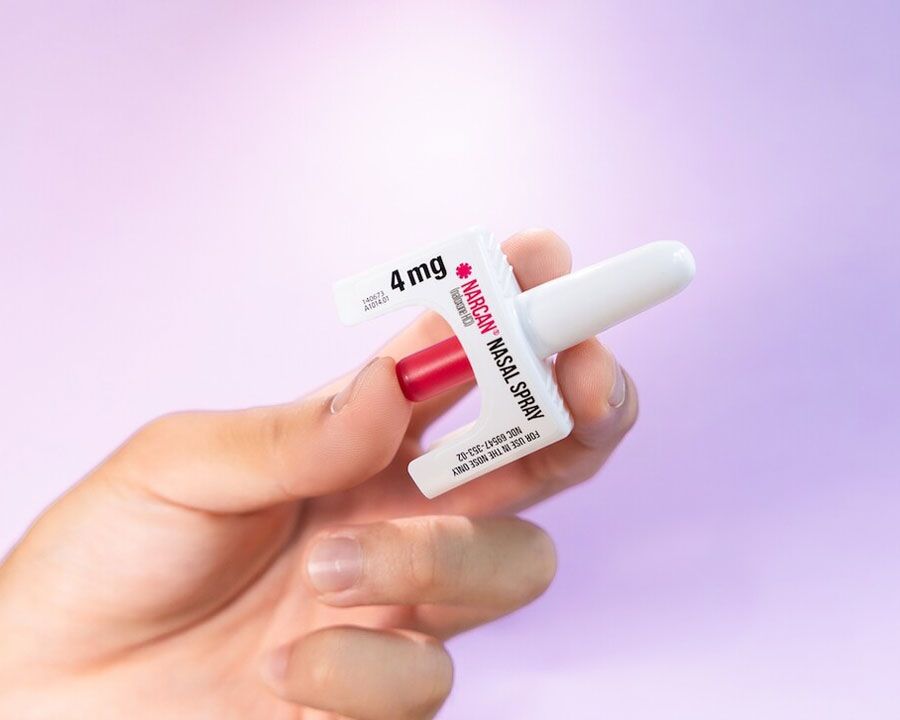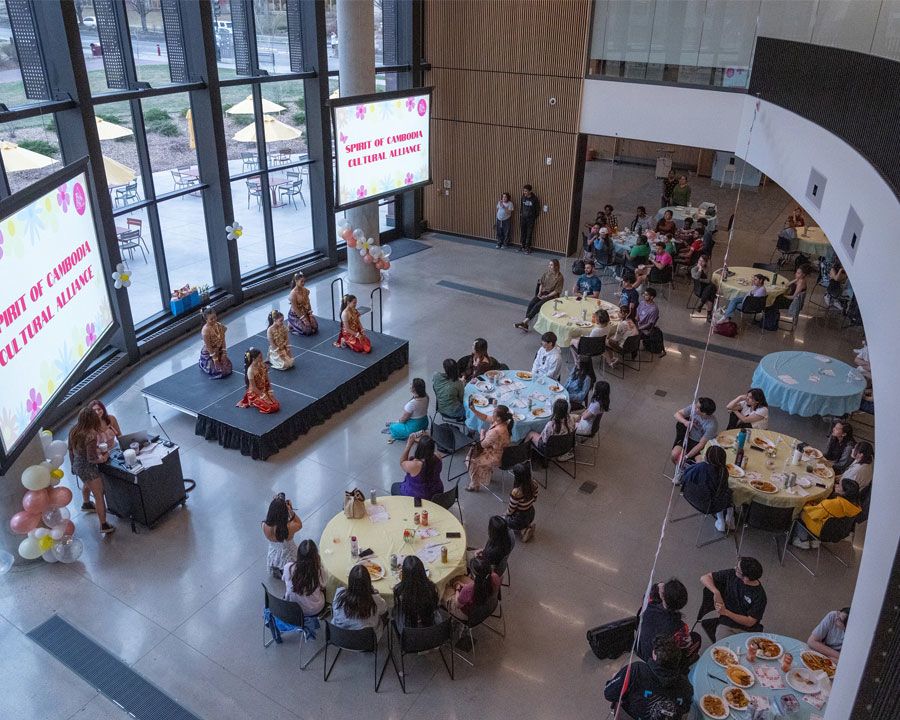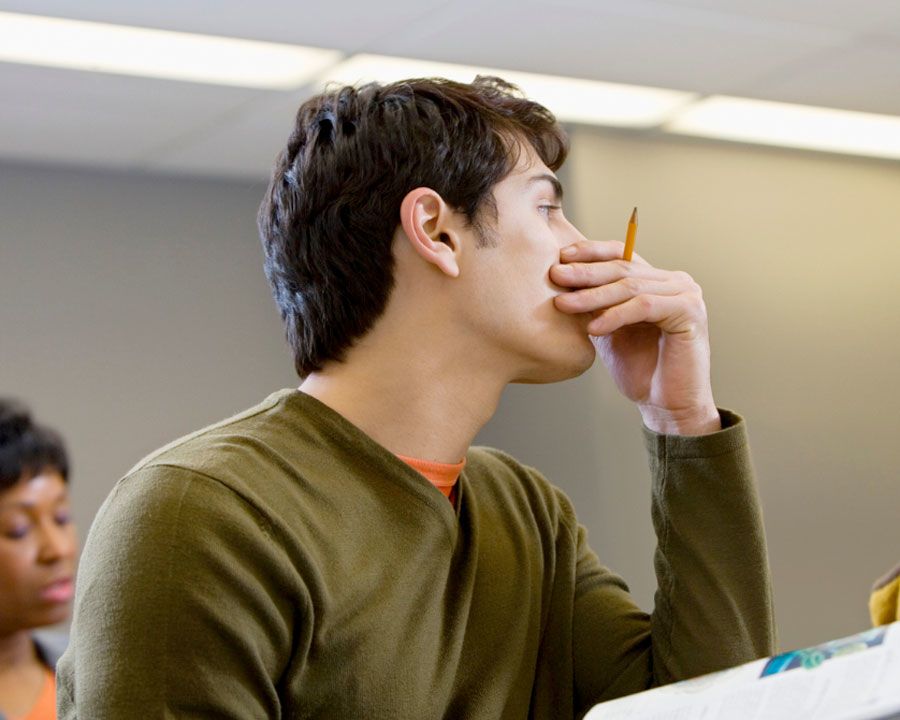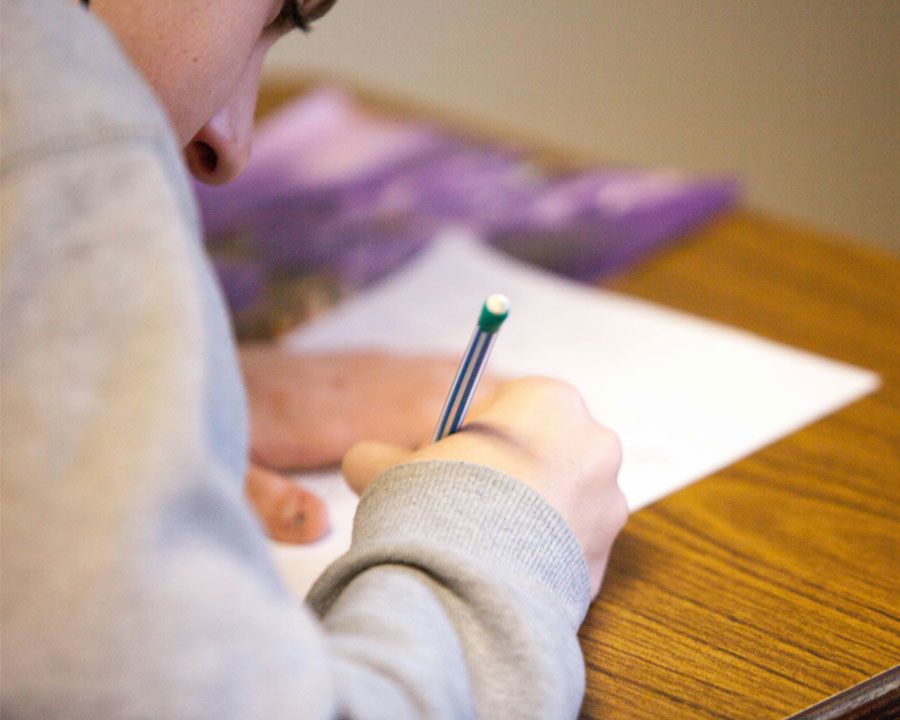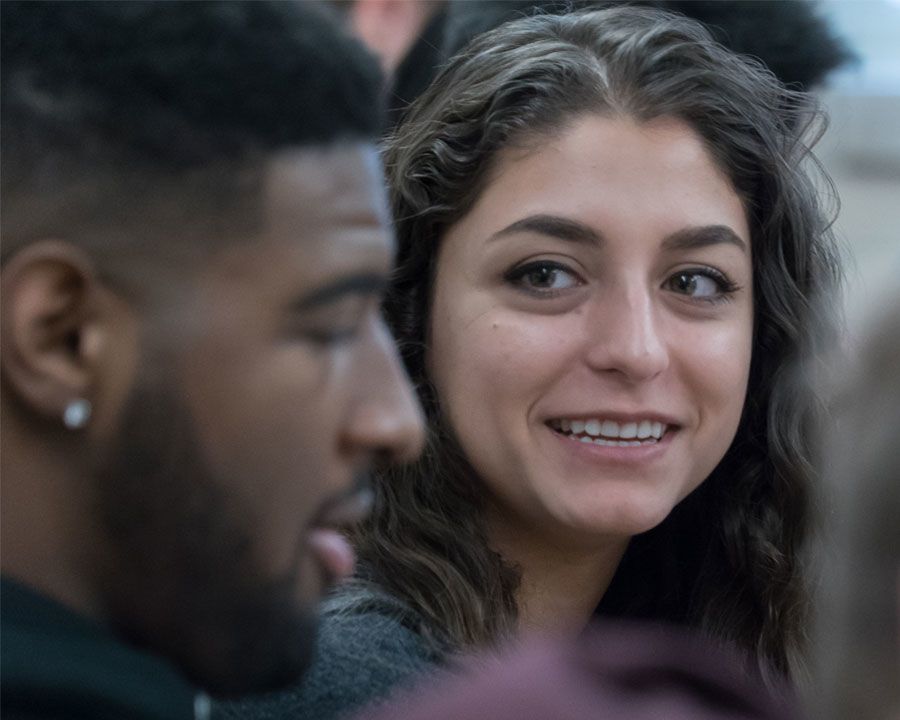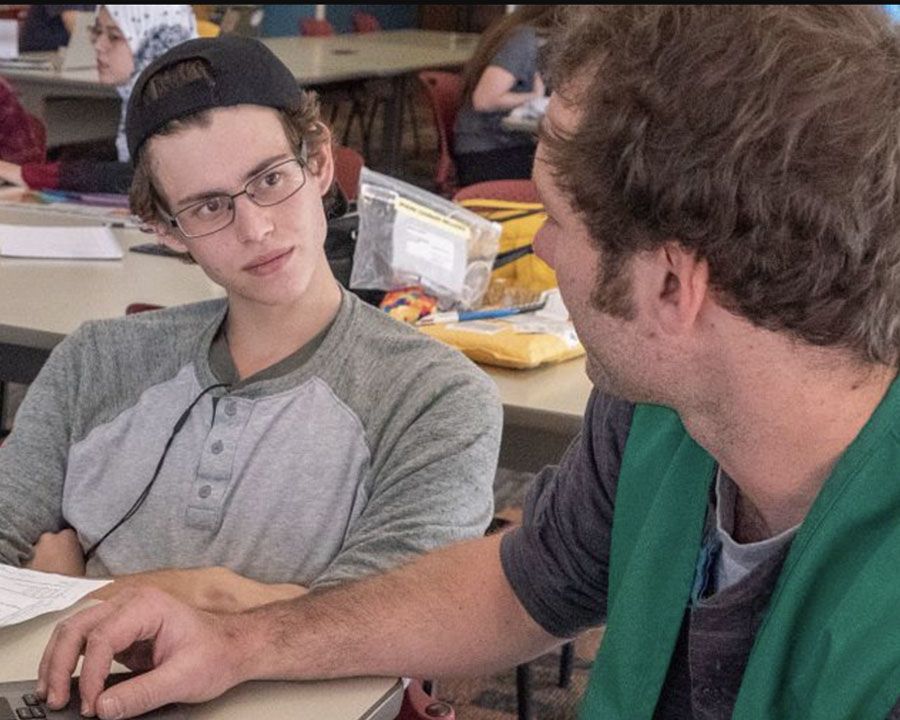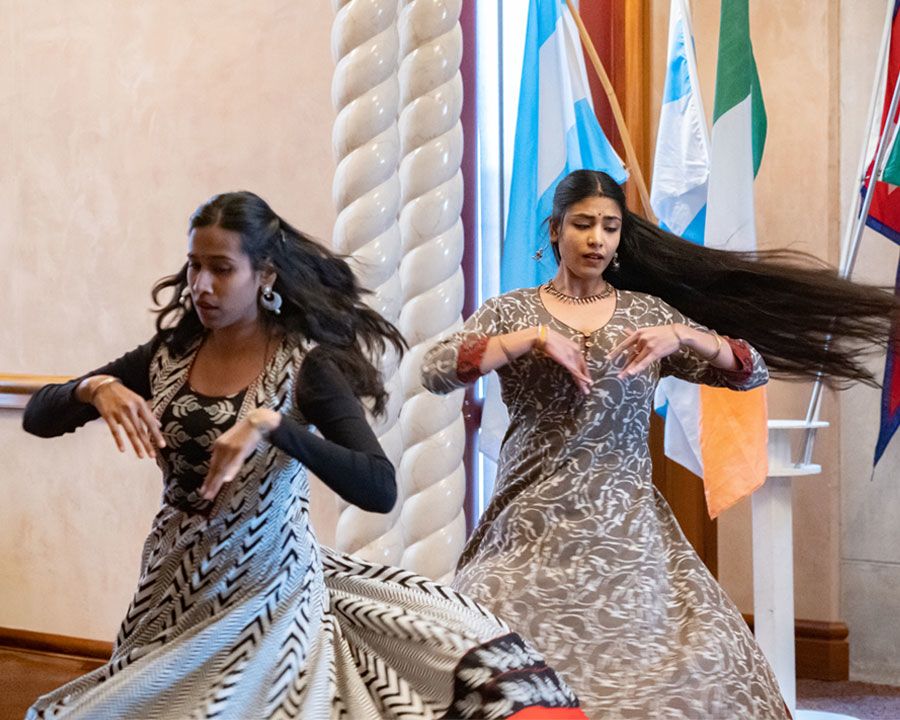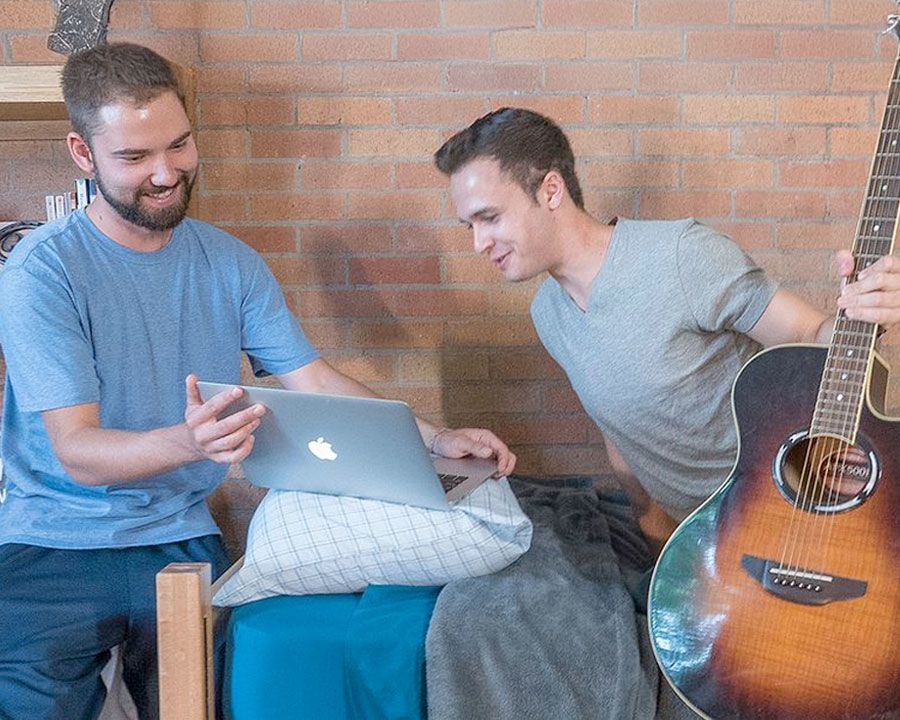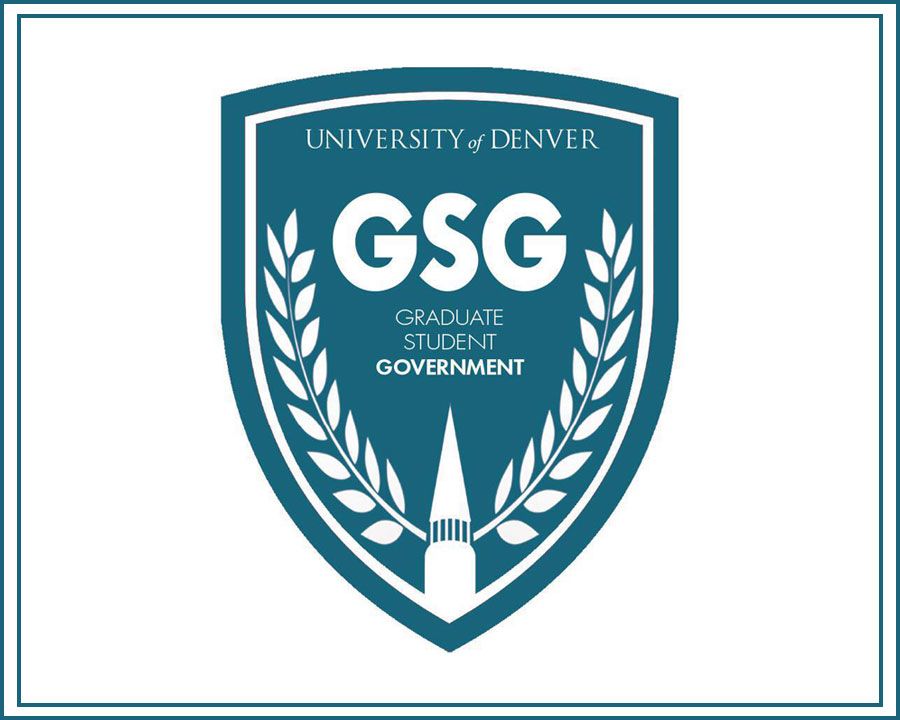Enriching Student Life Outside the Classroom
Enriching Student Life Outside the Classroom
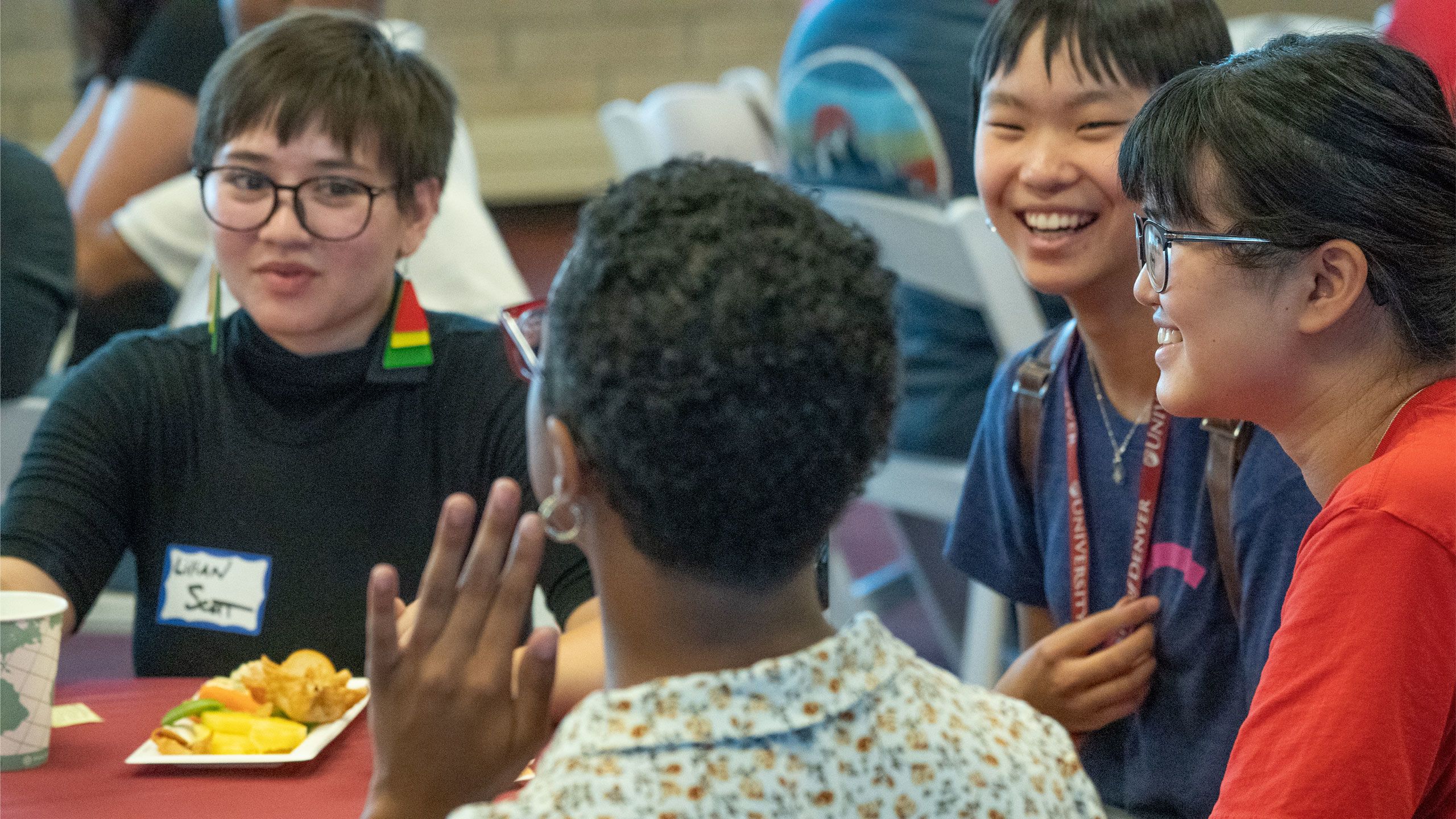
Celebrating significant achievements within Student Affairs & Inclusive Excellence (SAIE) along our five strategic priorities:
|
|
|
|
|
|
|
Enrich the holistic student experience. |
Elevate & Embed diversity, equity, inclusion, & justice. |
Engage purposeful partnerships. |
Enhance staff development, learning, & well-being. |
Enact sustainable practices & operations. |
Vision: We will be full partners in students’ learning experience.
Mission: We support students in their holistic development through: Advocacy, Collaboration, & Education.
Values: Student-Centricity; Diversity, Equity, Inclusion, & Justice; Collaboration; Adaptability; Accountability
Celebrating significant achievements within Student Affairs & Inclusive Excellence (SAIE) along our five strategic priorities:

|
Enrich the holistic student experience. |

|
Elevate & Embed diversity, equity, inclusion, & justice. |
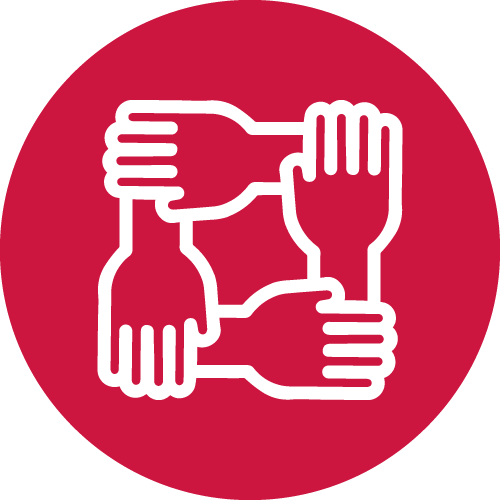
|
Engage purposeful partnerships. |
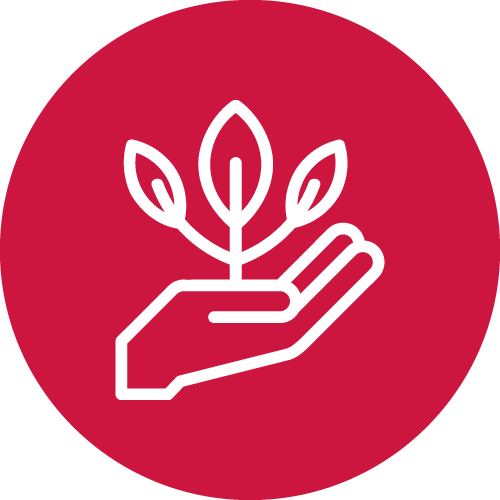
|
Enhance staff development, learning, & well-being. |
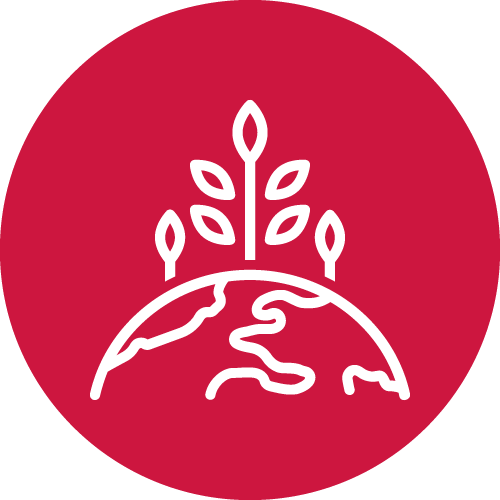
|
Enact sustainable practices & operations. |
Vision: We will be full partners in students’ learning experience.
Mission: We support students in their holistic development through: Advocacy, Collaboration, & Education.
Values: Student-Centricity; Diversity, Equity, Inclusion, & Justice; Collaboration; Adaptability; Accountability
Impact by the Numbers: Enriching the 4D Student Experience
Supporting the Well-Being of all Students
- 7,980 DU community members engaged in Health Promotion activities.
- 270+ unique contacts were served by trauma-informed care through the Center for Advocacy, Prevention, & Empowerment.
- 400+ community members engaged in National Collegiate Recovery Week.
- 12,000+ individual appointments for medical services.
- 2,160 student contracts for counseling services.
Engagement, Mentorship, & the 4D Student Experience
- Residential Community Programming with 370 in-hall programs and 6,000 student engagements
- The Cultural Center co-hosted 120 events with 2,100 attendees
- 100+ 4D peer mentors
- 1,500 students participated in Discoveries Orientation
- 800+ students participated in First Ascent
Developing Intellectual Growth, Character, & Lives of Purpose
- 120+ active registered student organizations, with 500+ unique student officers in leadership positions
- 400+ students served through the Learning Effectiveness Program (LEP)
- 90+ students had one-on-one meetings with the Dean of Students Leadership
- 4K+ tests proctored by AccessibleDU: Student Disability Services
- 8.9K hours of community service reported by fraternity and sorority chapters, around 8.8 hours per student
Enhancing the 4D Student Experience
ELEVATING THE DINING EXPERIENCE
Thanks to insights from an external program review and valuable feedback from our students, we’ve created a series of exciting dining enhancements designed to cater to the diverse tastes and needs of our campus community. These improvements reflect our commitment to providing an exceptional dining experience that truly resonates with our student body.
- We expanded dining by continuing operations during Winter and Spring breaks, offering Pop-Up events monthly, creating a Ghost Kitchen for order and pick-up food services, and adding additional services, such as reactivating the Law School Café, and preparing the infrastructure to onboard Qdoba!
- The installation of two "Just Baked Vending Machines" in Johnson-McFarlane Hall and Centennial Towers is a game-changer, offering hot, take-out quality meals at their fingertips, any time of the day.
- We successfully piloted a Passover Dining initiative, introducing a certified kosher order-form option along with an array of kosher-style Passover choices in the dining hall.
- Looking ahead, we’re offering a fresh format for Ramadan iftars, to feature a Chef’s Corner takeover, showcasing weekly, regionally themed vegetarian dishes from the Middle East, Africa, South Asia, and Asia—providing a rich culinary experience for all students.
REVITALIZING RESIDENTIAL LIFE
Housing & Residential Education (HRE)’s enhanced residential model is designed to be more responsive, fostering meaningful peer mentorship and aligning our residential support services with the Council for the Advancement of Standards in Higher Education (CAS).
This refresh is also about elevating the sense of community and support within our residence halls. With the generous backing of donor funding, we’re launching a series of engaging programs focused on promoting respectful dialogue and active participation. These initiatives aim to support students not only in their 4D personal growth but also in building a vibrant, inclusive community where every voice is heard.
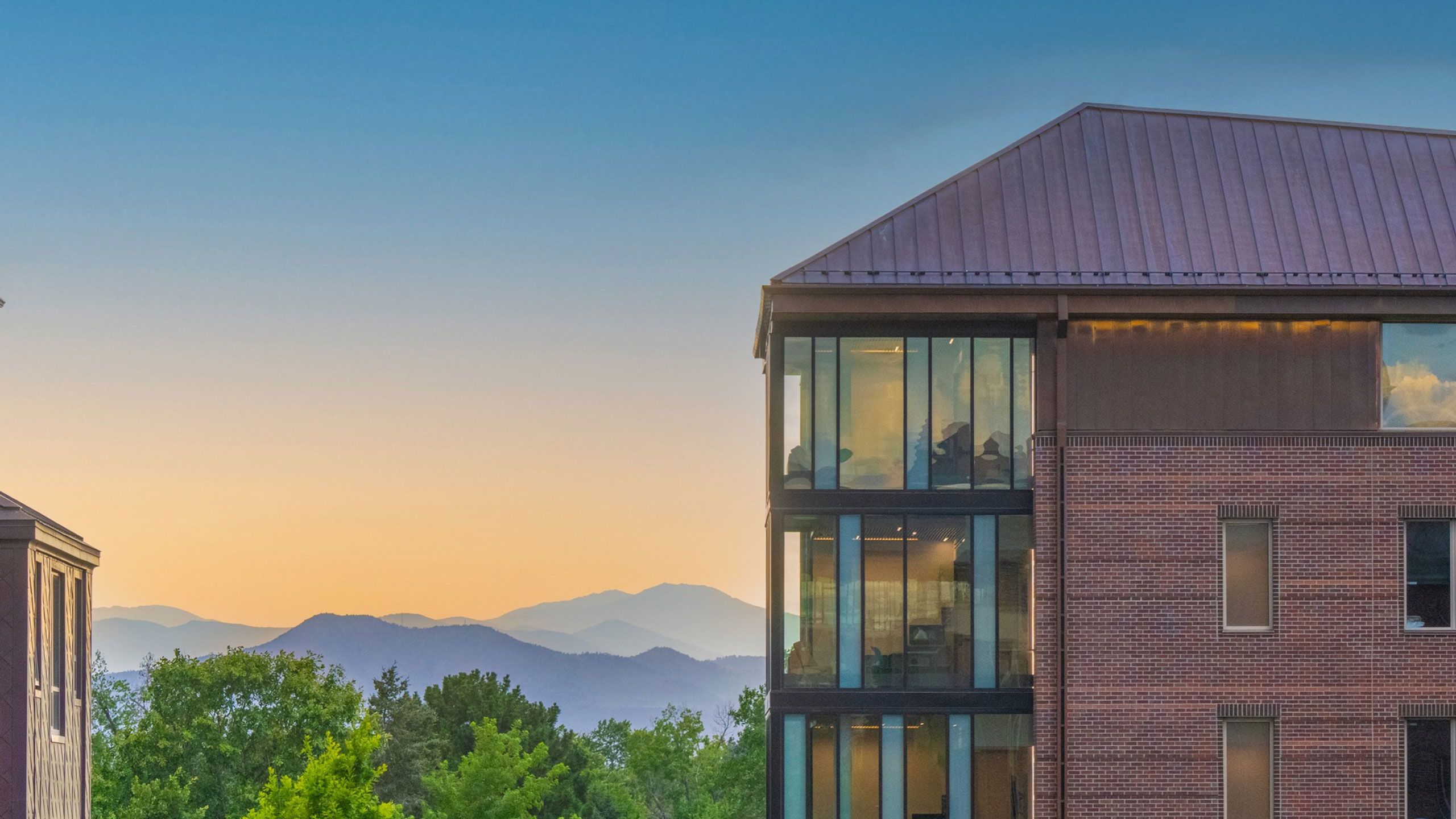
STUDENT GROWTH AND DEVELOPMENT
Our approach to student growth and development is shaped by industry trends, employer needs, and our 4D framework. Student-facing departments have learning outcomes for student growth and development. Themes within department level learning outcomes include:
- Self-Awareness and Identity Development
- Self-Advocacy and Self-Determination
- Sense of Belonging and Community Engagement
- Leadership and Accountability/Ethics
- Diversity, Equity, Inclusion, and Justice (DEI&J)
- Career Readiness and Professional Development
- Care of Self and Others
These outcomes not only promote personal and professional development but also foster a strong sense of belonging, purpose, and community engagement. Given the need to better pursue purpose and meaning in students’ lives, our programs are designed to help students connect their academic and personal experiences to a broader sense of purpose (Gallup-Walton, Voices of Gen Z, 2024).
This year, departments prioritized the following skills:
SAIE departments have collectively advanced the holistic student experience, promoted inclusivity, and supported diverse student populations, while maintaining strong alignment with SAIE’s strategic priorities and core values. Achievements underscore the division’s commitment to creating a more accessible, equitable, and supportive environment for all students at the University of Denver.
EXAMPLES OF 4D IN ACTION!
ADVANCING INTELLECTUAL GROWTH
Peer mentorship programs connect student mentors with peers through orientation, mentorship meetings, and weekly discovery sessions to share community expectations, navigate resources, build relationships, and engage in reflective practice.
Cultural Center activities such as escape rooms, thesis writing workshops, and deep discussions about identity and community engage students with complex ideas.
The Residential Education Model (REM) provides a structured environment for passive and active learning through community development and social engagement.
The Neurodiversity Institute (NDI) equips faculty and staff with the skills to support neurodivergent students.
The Spiritual Supper Club features foods from Islamic, North Indian, and Latine traditions, with students learning to cook dishes from diverse cultures.
EXPLORING CHARACTER
Fraternity/sorority president workshops on leadership, DEI&J, healthy masculinities, and hazing prevention cultivate emotional intelligence, conflict management, and civic engagement.
Social Justice After Dark uses popular culture to explore social justice, diversity, equity, inclusion, and microaggression, to help students understand their positionality within systems of oppression and empower them to engage in social justice efforts.
The GOLD Program allows students on Student Conduct Probation to engage in restorative justice within their DU communities; with written reflections on their decisions and impact.
Student leaders and fraternity/sorority presidents engage in education on leadership, DEI+J, healthy masculinities, hazing, and suicide prevention to cultivate a community of care and inclusiveness.
WELL-BEING
Health Promotion offers education on harm reduction, suicide prevention, healthy relationships, masculinities trainings, and mental health first aid.
The End of Season Stress Relief Event supports student well-being through a variety of wellness activities, encouraging students to manage stress and balance responsibilities.
Medical Services operates an on-campus AAAHC-accredited integrated health and counseling center, offering primary care, urgent care, mental health services, and gender-affirming care.
Counseling Services uses CCAPS instruments in clinical work with students to assess and support their mental health.
Collegiate Recovery Programing impacts student access to recovery and decreases stigma surrounding substance use disorder and recovery in the community.
Heritage Month Celebrations, LGBTQ+ events, and the Veterans Ball promote well-being, identity affirmation, community building, and diverse celebration.
The Annual CAPE Gala honors survivor services and raises funds for CAPE Survivor Fund, contributing to a supportive community of care.
PURSUING CAREERS AND LIVES OF PURPOSE
Intentional reflections for student employees and student leaders encourage discussions on leadership, teamwork, and interpersonal relationships.
FIRST @DU’s Success Sessions and First Gen Week celebrate and support first-generation students, with enrichment funds aiding participation in High-Impact Practices (HIPs) such as study abroad, undergraduate research, and leadership opportunities.
Student Outreach and Support helps students create action plans to achieve goals and navigate challenging situations, including the possibility of taking a leave of absence.
The Disability Visibility Graduation Ceremony celebrates the achievements of students engaged with disability services.
Providing Quality Programming
ENHANCED STUDENT HEALTH SERVICES
The Health and Counseling Center (HCC) conducted a thorough evaluation of its healthcare model, uncovering valuable insights to shape future strategies. The HCC also achieved reaccreditation from AAAHC, a testament to its unwavering commitment to high-quality standards and operational excellence. Health services jumped from 24th to an impressive 18th in the Princeton Review rankings.
These advancements highlights HCC’s dedication to providing top-tier services for DU students, ensuring their well-being is always our highest priority.
DRIVING CHANGE THROUGH SOCIAL JUSTICE
This year, we launched Social Justice Education Programming, advancing our inclusive campus efforts. The “Social Justice After Dark” pilot series engaged students in a five-week curriculum covering Social Justice 101, DEI 101, Microaggression Intervention, and Queer & Ally trainings.
The Social Justice Peer Educator (SJPE) program also played a key role, co-facilitating trainings and introducing formal assessments to enhance effectiveness. These initiatives are more than just programs; they are the building blocks for a more just and equitable future for the campus community.
BROADENING HORIZONS THROUGH REGISTERED STUDENT ORGANIZATIONS (RSOS)
Registered Student Organizations (RSOs) significantly expanded their reach and impact across campus as evidenced by a remarkable 33% increase in supplemental funding requests—a clear sign of the rising ambition and creativity within these dynamic groups. Engagement in programming increased, showcasing students’ commitment to fostering safer, more responsible communities with greater student ownership in shaping their campus experience.
50% jump in RSOs completing the Harm Reduction Workshop requirements.
INSIGHTS FROM MARKET RESEARCH
This year, Housing and Residential Education (HRE) took a proactive approach to understanding the housing needs of our student body. By conducting a comprehensive housing demand survey and assessing on-campus living, HRE gained valuable insights into current housing trends and what prospective students are looking for. These findings have paved the way for a visionary Housing Master Plan that promises to redefine on-campus living. Our goal is to ensure that our housing options not only meet but exceed student expectations, creating vibrant and welcoming spaces where everyone can thrive.
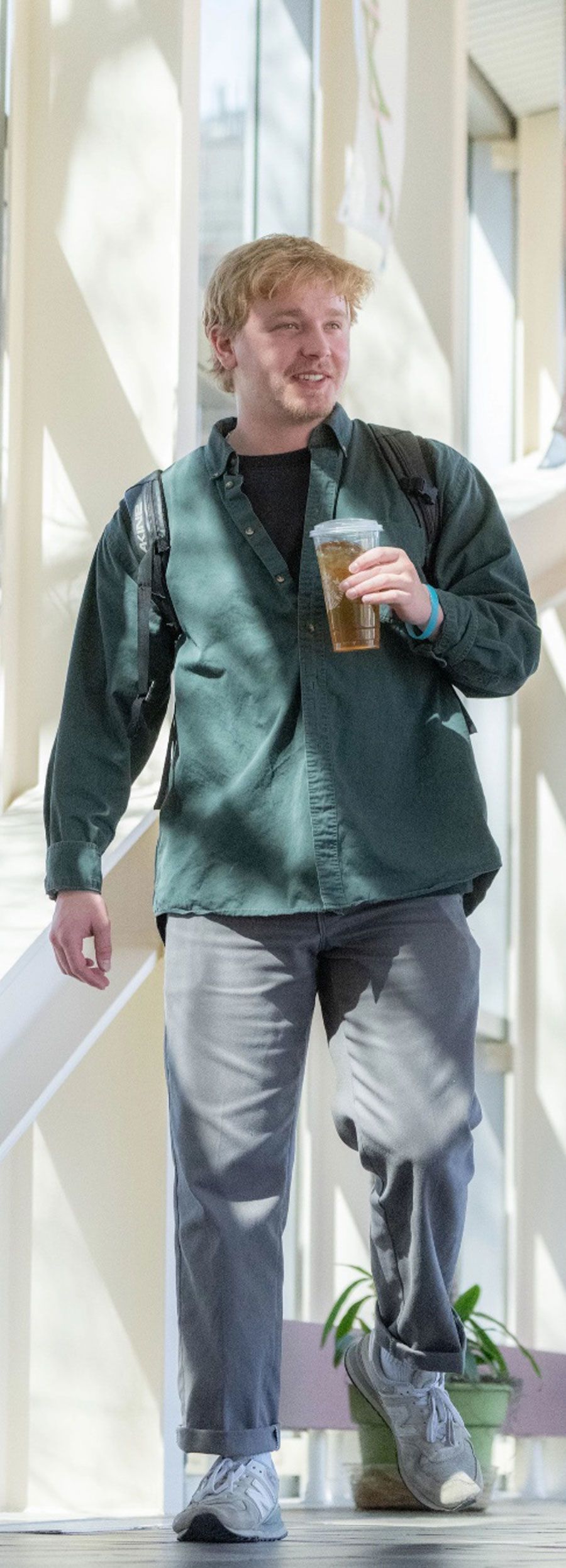
Key Partnerships Within and Outside DU
EMPOWERING STUDENT-ATHLETES:
NCAA TITLE IX TRAINING
In collaboration with Athletics and the Equal Opportunity Title IX (EOIX) office, Health Promotion equipped approximately 283 student-athletes with crucial NCAA Title IX compliance training. Impressively, 99% of participants successfully identified scenarios of sexual harassment and demonstrated a solid understanding of the "F.I.R.S.T. Consent" acronym, showcasing our commitment to creating a safer campus environment.
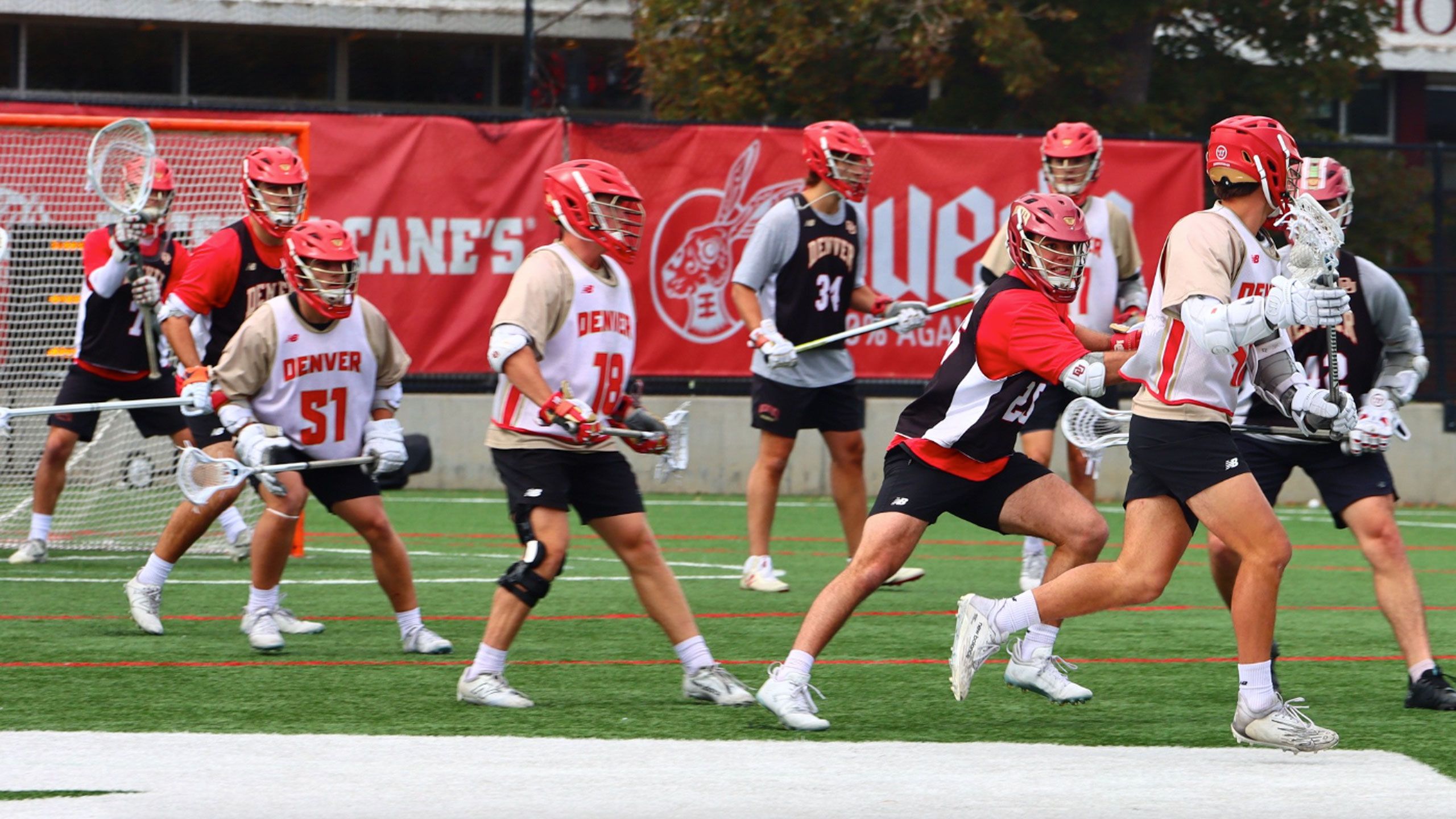
A COMMITMENT TO COMMUNITY SERVICE
Students and staff united to decorate 75 bags for Project Angel Heart, bringing nourishing meals to individuals battling severe illnesses.
Student Veterans Association partnered with the Travis Manion Foundation to deliver toys to hospitalized children underscoring our dedication to service, and compassion.
Fraternity and Sorority chapters reported an astonishing 8,900 hours of community service.
LIFE-SAVING RESOURCES: NARCAN DISTRIBUTION
In collaboration with the State of Colorado’s Naloxone Bulk Fund, DU secured 540 boxes of Narcan, a critical overdose reversal medication. Health Promotion distributed to Collegiate Recovery Program participants, individual students, and Fraternity and Sorority chapters, significantly expanding our campus-wide safety net.
REVITALIZING CAMPUS ENGAGEMENT: EVENT SPACE UTILIZATION
The DU Community Commons has triumphantly returned to its pre-pandemic vibrancy, hosting approximately 5,300 events, including 70 signature events, that foster connection and celebration across our community.
Building a Community of Care
MENTAL HEALTH FIRST AID (MHFA) PROGRAM
In response to the strategic recommendations of the JED Foundation, Health Promotion launched the MHFA Program, with remarkable results. Participant’s confidence in discussing mental health grew from 60% to 90% after the program, reflecting the program’s profound impact on our community’s mental health literacy and readiness.
STUDENT DISABILITY SERVICES REINVIGORATED
Through targeted professional development and streamlined workflows, Student Disability Services (SDS) successfully prepared and proctored over 4,000 tests this year. The surge in assistive technology requests—nearly double from previous years—reflects our commitment to supporting diverse learning needs.
SUPPORTIVE CASE RESOLUTION MEETINGS
Crucial case resolution meetings with Student Rights and Responsibilities provide students with an opportunity for deep reflection on the impact of their actions on others, the DU community, and themselves. This reflective process not only fosters personal growth and accountability, but also equips students to make more informed and conscientious decisions.
THE NEURODIVERSITY INSTITUTE
The Learning Effectiveness Program’s Neurodiversity Institute (NDI) made significant strides in partnership with the Office of Teaching and Learning (OTL), launching programs for staff, faculty, and academic administrators. With over 100 participants, the NDI has become a cornerstone of our efforts to cultivate an inclusive environment that embraces neurodiversity across campus.
ENHANCING DIVERSITY, EQUITY, INCLUSION, AND JUSTICE
The SAIE Diversity, Equity, Inclusion, and Justice (DEI+J) team embarked on a comprehensive analysis of the division’s status, laying the groundwork for an official DEI+J framework.
Counseling Services hired a DEI coordinator and trauma counselor and adding two Spanish-speaking providers, significantly enhancing language accessibility and support for our diverse student body.
Supporting Holistic Student Success
ELEVATING THE PRESENCE OF THE DEAN OF STUDENTS OFFICE
In its second year of development, the Dean of Students (DoS) Office has significantly increased its visibility, establishing a strong social media presence and continuing to evolve the DUHelp one-stop landing page. The office has seen a marked increase in student engagement, with more traffic in our suites, a rise in email inquiries, and greater attendance at DoS events by both graduate and undergraduate students.
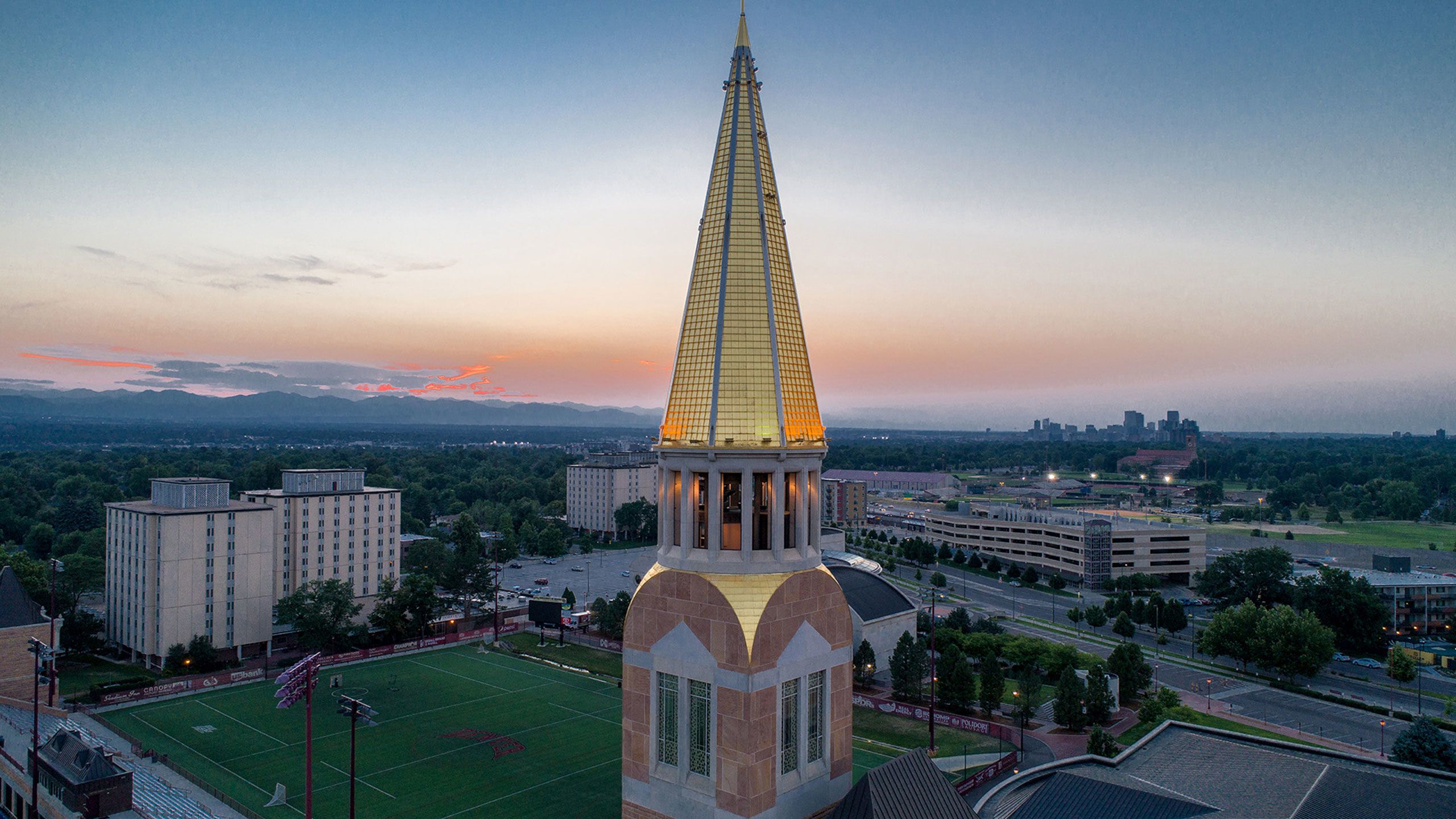
MEETING THE RISING DEMAND FOR HOUSING
In response to the growing demand for on-campus housing among upperclassmen, we've significantly expanded our offerings. This trend underscores the urgent need to further develop housing solutions tailored to upper-division and graduate students to foster an environment where all can thrive academically and socially.
EMPOWERING GRADUATE STUDENT ENGAGEMENT
Through our collaboration with the Graduate Student Government (GSG), we streamlined the application, recognition, and funding processes. We fostered cross-disciplinary collaboration and
increased participation in key events, such as Grad Student Appreciation Week, making graduate student life more vibrant and interconnected.
SUPPORTING STUDENTS IN THE “SOPHOMORE SLUMP”
The Second-Year Experience Working Group, convened in November 2023, developed a Second-Year Experience Roadmap—centered on four key themes— academic self determination, experiential pathways, mentorship, and belonging.
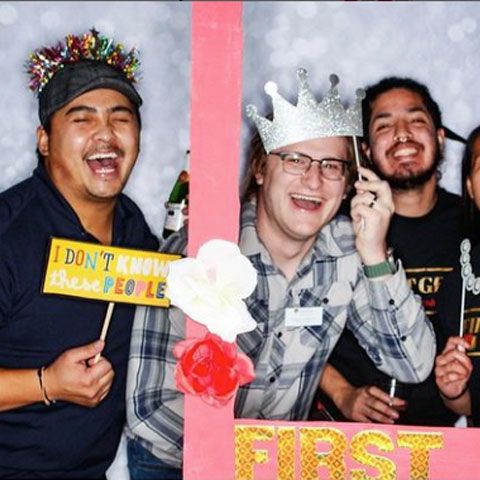
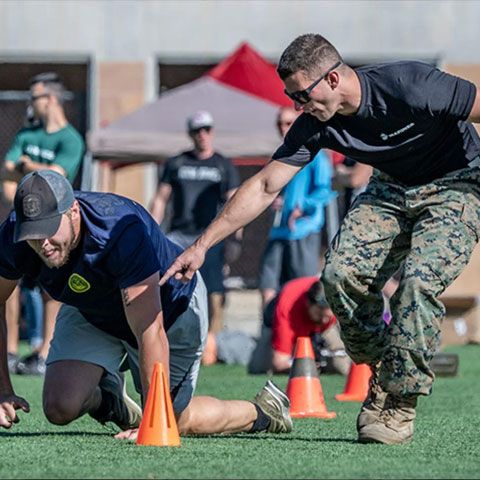

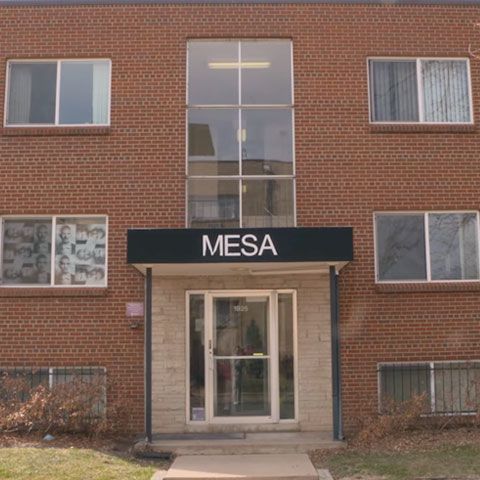
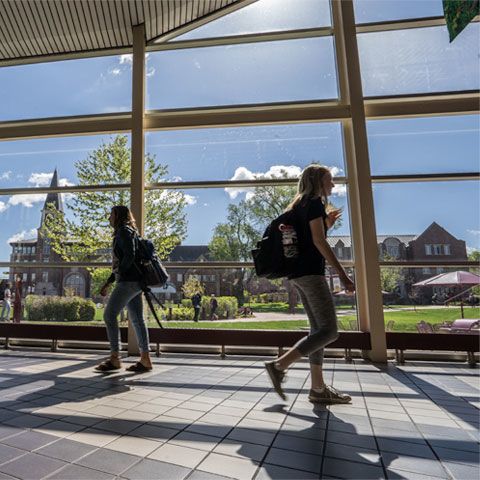
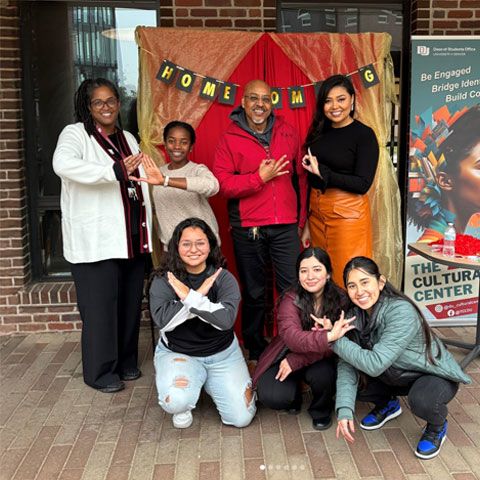
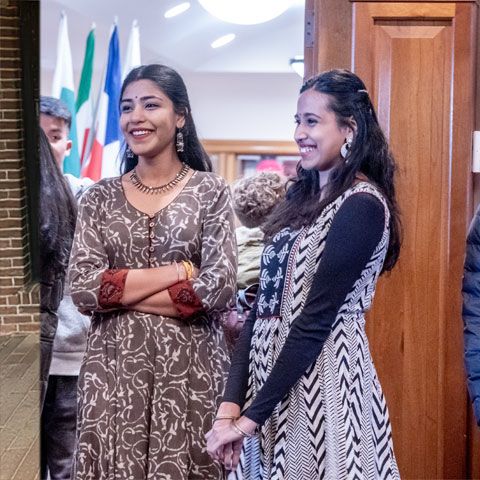
FIRST-GENERATION STUDENTS: A NEW ERA OF INCLUSIVITY
The FIRST@DU program transitioned from a cohort-based model to an inclusive approach, inviting every first-generation student to engage in personalized experiences. College success sessions, study groups, and signature events became thriving spaces for connection and self discovery.
- 51% of all first-generation undergraduates participated in at least one FIRST@DU initiative, with nearly a third engaging in two or more.
- 90% of first-generation students reported a strong sense of belonging and feeling valued.
EXPANDING OPPORTUNITIES FOR MILITARY-AFFILIATED STUDENTS
Through a strategic partnership with the Registrar’s Office, Veteran and Military Resources successfully expanded the Yellow Ribbon Program to offer tuition-free education for all eligible students at DU. This will give our military-affiliated students the support they need to succeed.
SUPPORTING STUDENTS FACING FINANCIAL HARDSHIP
Student Outreach and Support (SOS) provided approximately $160,000 in aid to over 200 students facing financial challenges. Through targeted support, SOS is helping to promote a more inclusive and supportive higher education experience for all graduate students.
- 33% of SOS cases involved financial and/or food insecurity
- 45% of all SOS cases were graduate students
RECOVERY HOUSING: A SAFE HAVEN FOR STUDENTS IN RECOVERY
The Collegiate Recovery Program continues to be a lifeline for students in recovery. Thanks to their efforts, residents in recovery housing achieved a 90%-100% recovery persistence rate, demonstrating the program’s vital role in supporting students on their journey to wellness.
ENHANCING RETENTION THROUGH THE LEARNING EFFECTIVENESS PROGRAM
By closely monitoring student retention from week 3 through the end of the term, the Learning Effectiveness Program (LEP) saw its fall-to-fall one-year persistence rate rise from 81.9% (2021-2022) to 85.6% (2022-2023). This increase highlights our commitment to academic support and student success, positioning us favorably compared to peer institutions.
THE CULTURAL CENTER: EXPANDING HORIZONS AND BUILDING COMMUNITY
Through intentional partnerships, the Cultural Center delivered a robust array of programs such as the Multicultural Welcome Receptions, Authentically Navigating Professionalism, and DEI+J in the Contemporary Media Landscape. These initiatives have broadened the understanding of historically marginalized identities within professional and career contexts, fostering a more integrated and intersectional community. Additionally, the center strengthened its collaboration with Black Community Initiatives, hosting events like Black Love Day, the Black Art Jubilee, and the Black Community Dinner. Finally, DU was recently ranked #21 for LGBTQ-Friendly Colleges in the Princeton Review rankings.
SUPPORTING OUR INTERNATIONAL STUDENTS
During the 2023-2024 academic year, nearly 19% of the students supported by SOS were international students. Through initiatives like the Student Assistance Funds and Swipe Out Hunger, we’ve provided crucial support to this community. The insights gained from our work with international students were shared with the International Student Working Group, enhancing campus-wide understanding of their unique experiences and needs.
